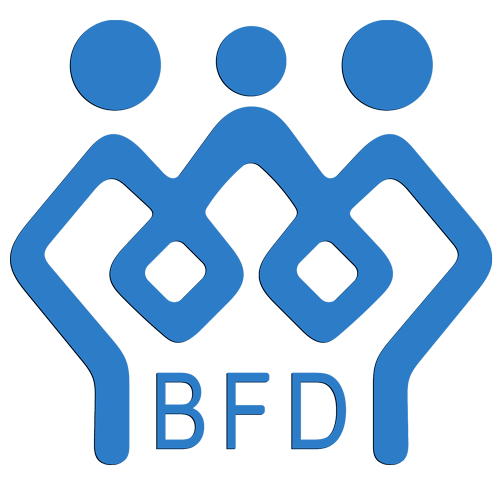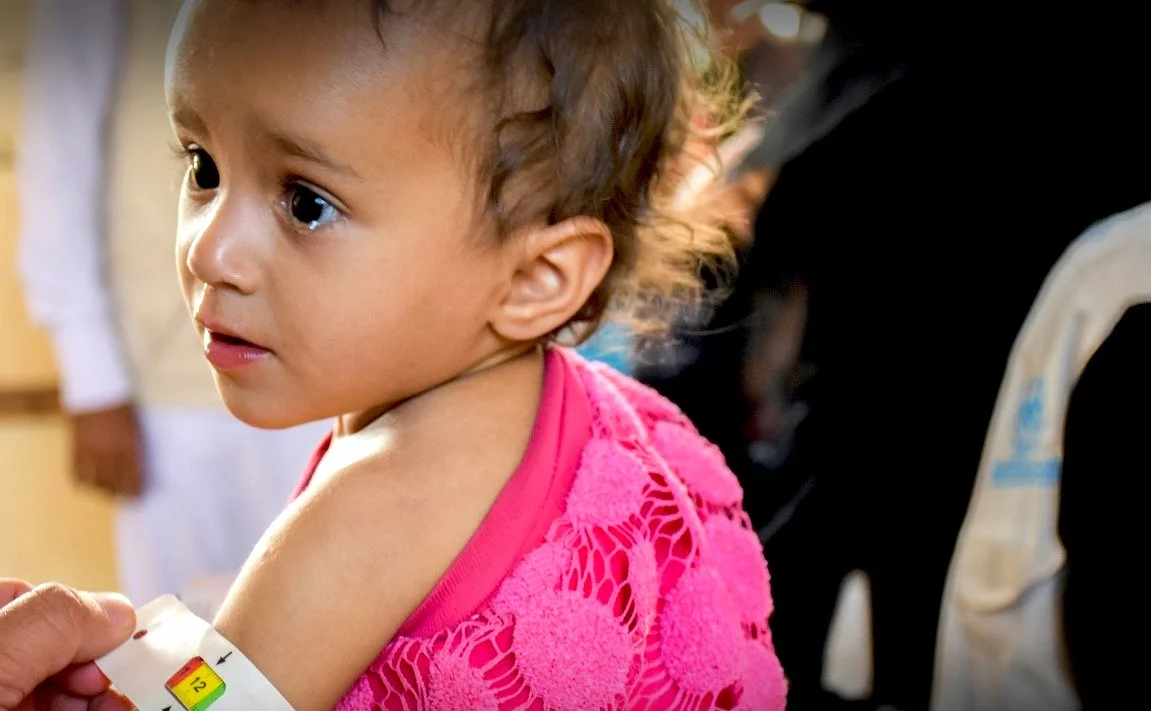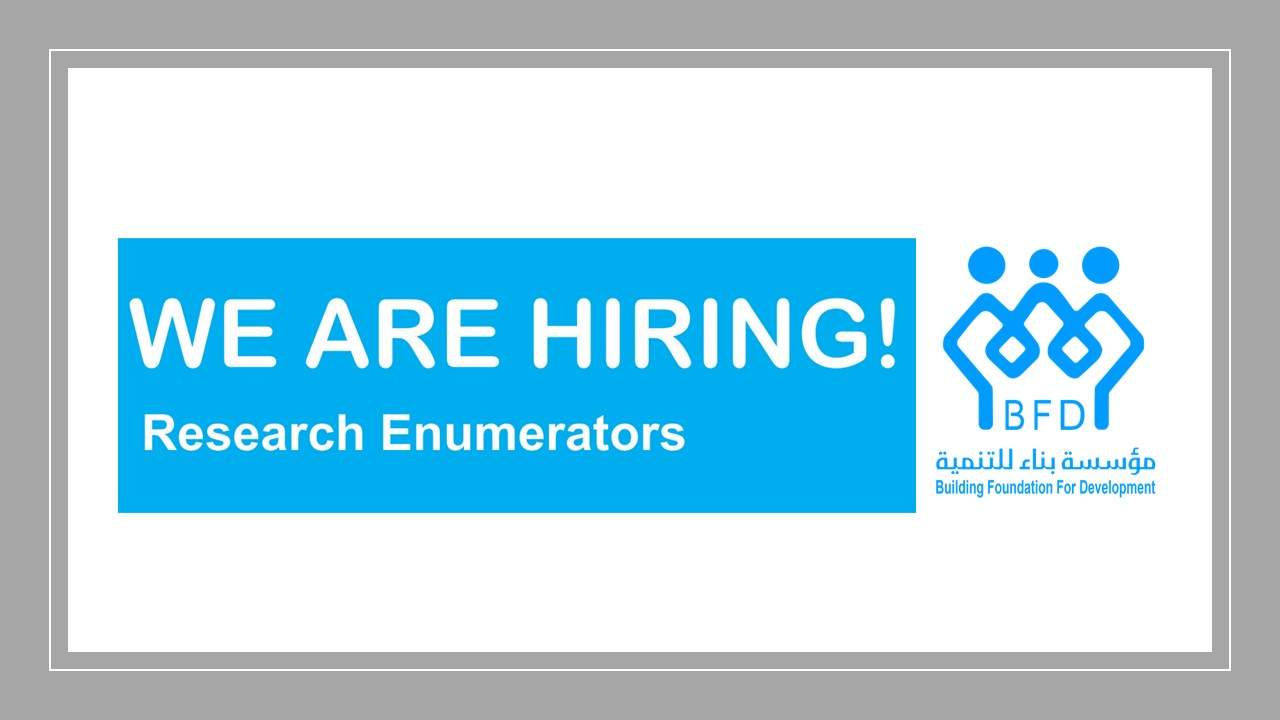Closing on 08/June/2024- After:
0
Days
0
Hours
0
Minutes
0
Seconds
Job Description:
JOB OVERVIEW
JOB TITLE : FFT Project Team leader
DEPARTMENT Program
Report to: FFT Project Officer
LOCATION: Sa’ada ( Al Safra – Razih ) districts
DURATION: Temporary contract for three months
ABOUT Building Foundation for Development:
BFD is a non-governmental and non-profit Yemeni organization, that was established in 2014. BFD is a leading humanitarian-based and development-oriented organization, which over the years extended its coverage to several governorates, with a mission of working in a humane and transparent manner for the vulnerable groups in society and the affected groups through the implementation of sustainable development and relief programs of the highest quality. Responding to all areas of humanitarian sectors, BFD aspires to provide an integrated humanitarian and development response to conflict-affected areas through a professional, neutral, transparent approach, and through adherence to the Core Humanitarian Standards (CHS).
MAIN PURPOSE:
The field team leader will be responsible for identifying and analyzing training needs in the targeted areas, supervising the implementation of project activities, and ensuring timely implementation of the project to support the achievement of project objectives.
He will work in the field to enhance community participation in the various project activities, and coordinate and work to build a good relationship with local authorities, stakeholders, and parties related to project implementation in order to create a suitable work environment for implementing project activities. He will also work alongside team members and will be responsible for coordinating and creating links between all project team members. The Field Team Leader will provide timely and accurate reports to the Project Officer.
Responsibilities:
GENERAL JOB DESCRIPTION
DUTIES & RESPONSIBILITIES
- Coordination and cooperation with local authorities and creating effective communication channels at all stages of project implementation to serve the progress of the training process
- Building strong relationships with stakeholders at the level of the targeted governorates and districts, government agencies related to the implementation of project activities, and other organizations working in the field of the project, coordination, and joint planning, in a way that serves to improve the flow of the training process and avoid duplication of humanitarian interventions and services.
- Work with the local community in identifying target communities that align with the project criteria.
- Conduct a survey of the target areas and verify the suitability of the project activities to the needs in the targeted areas and evaluate the living situation and food security situation and the extent to which the program standards apply.
- Identify training communities’ needs that are required by the labor market and contribute to improving livelihoods and the level of food security through collecting primary data. Market analysis, community consultations and needs analysis.
- Select training sites in each target community in coordination with the local authority, relevant government agencies, and community leaders, and ensure the readiness of these centers to implement training programs.
- Determine the needs of training activities for each training program, plan and manage occupational safety procedures and measures, and choose the most appropriate training methods to ensure the highest quality and effectiveness of training.
- Mobilizing and mobilizing the targeted local communities and creating sufficient awareness of the project, its objectives, its activities, the criteria for targeting the regions, the beneficiaries of the intervention, and the various areas of intervention.
- Design a comprehensive, time-bound and detailed supervisory plan in accordance with the project strategy that includes implementing all project activities, and arranging them sequentially so that the objectives, content, means, activities, and time period required for their implementation are determined.
- Monitor and evaluate the outcomes of training programs and activities, with the support of the Monitoring and Evaluation Department (MEAL), and determine the extent to which the training objectives set for the training programs have been achieved and the extent of the training’s efficiency in achieving this, and determine the extent to which the participants have progressed and benefited and acquired practical experiences and skills in the field of their specializations and increased progress. Project management of any deviations from the project plan specified for implementation.
- Measuring the impact of the project on the beneficiaries in the short and long term and supporting the family in maintaining tools and starting work on the income-generating project in conjunction with other social roles.
- Fill out all project forms and minutes, preserve them, and submit them to the project management
- Submitting periodic reports on the results of implementing training programs, the progress made on all project activities and work, and any other reports required for project management.
- Follow up, supervise, and maintain constant communication with the training supervisors to determine the extent of participants’ commitment to the training programs to ensure timely achievements according to the schedule and content of the training implemented by the trainers in accordance with the plans and standards set by the project management.
- Follow up and document project activities throughout the project period and prepare and document success stories for the project.
- Raise any difficulties and challenges facing the project periodically to the project officer and contribute to developing proposals and solutions that facilitate the implementation of project activities according to the agreed upon plan.
- Assisting participants during the training period by answering their questions and inquiries and addressing any problems that may occur in direct and permanent coordination with supervisors of training centers and community committees in a way that ensures quality performance.
- Any other tasks assigned by the line manager.
Preferred Qualifications:
Experience and Qualifications
- Bachelor’s degree in humanities, social sciences, economics, or any related field from an accredited educational institution.
- At least two-year previous experience in field project management and coordination in the field of FFT or related program in the aspect of rural vocational training, food security, livelihoods, agriculture, and business development, preferably in humanitarian NGOs.
- Familiarity with the principles of humanitarian work.
- Requires proficiency in computer applications (MS Word-Excel-PowerPoint)
- Organizational skills – This role requires a high level of organization, as the field team leader needs to schedule and prepare training sessions across departments and according to business needs
- Presentation skills – The field team leader often leads training sessions and provides employees with necessary information, so they need effective presentation and public speaking skills
- Data Analysis – The ability to analyze and evaluate data is also important in this role, as the field team leader needs to evaluate the impact of their training programs and use this data to make informed changes.
- Leadership skills – Leadership skills are also vital in this role, as the field team leader provides direct support and coaching during training sessions and ensures staff participating in the sessions stay on task
- Problem-solving skills – The field team leader must also possess excellent problem-solving skills to solve problems that arise during training programs and assist employees who need additional assistance
- Communication skills – Field team leaders must be effective in oral and written communication, able to converse with employees and managers and develop written training materials
Core Humanitarian Standards (CHS): The role holder is required to carry out the duties in adherence to the Core Humanitarian Standards, the values and principles outlined in BFD’s policies such as Code of Conduct, Prevention of Sexual Exploitation and Abuse, Child Safeguarding, Anti Workplace Harassment, Fiscal Integrity, Anti-Retaliation and other internal policies and guidelines.
Equal Opportunities: The role holder is required to carry out the duties in accordance with the BFD Equal Opportunities and Diversity policies and procedures.
Comply with all BFD’s policies :(Safeguarding policy, Code of conduct, Child protection, Safety & Security policy.) and other relevant policies and procedures.
How To Apply :
Important Note: All interested applicants matching with the requirements of the position should submit a CV and Cover Letter in English, and supporting documents (copy of valid ID, Diplomas, Work certificate and any other relevant certificate) through the following link: Please do not apply unless you meet minimum application requirements, otherwise, you will not be considered. The only way to apply for a position with BFD is through the link that is shared in the advert of YemenHR.com or the formal www.bfdint.org website. Applications that do not have enclosed a valid copy of the ID card and Degree will NOT BE CONSIDERED!
Note : Priority will be given for candidates from the Governorate and residing in it.
Please note that only short-listed candidates will be contacted!
No Fee:
BFD DOES NOT CHARGE A FEE AT ANY STAGE OF THE RECRUITMENT PROCESS (APPLICATION, INTERVIEW MEETING, PROCESSING, OR TRAINING).





